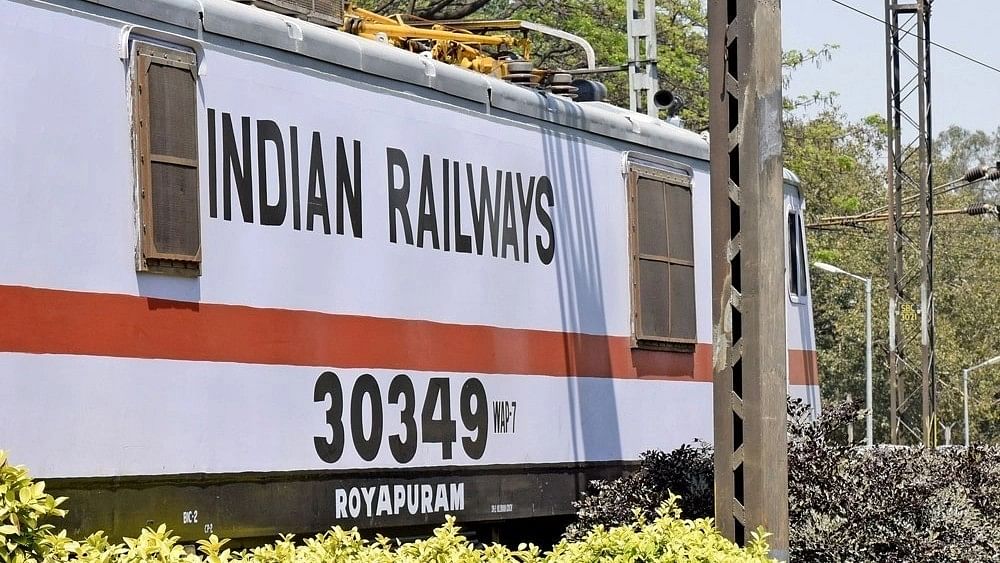
The forthcoming budget is expected to build upon the interim budget which was tabled in Parliament in February. In that, railways were allocated a capital expenditure of Rs 2.55 lakh crore for the current fiscal.
Image for representation.
Credit: DH file photo
Bengaluru: With the upcoming Union Budget expected to go big on infrastructure spending, analysts expect an increase in allocation for railways as well. Experts told DH that Finance Minister Nirmala Sitharaman should announce measures which focus on modernisation, safety, as well as expediting of the dedicated freight corridors.
"We expect thrust on modernisation and expansion of railways to continue in the upcoming budget, with sizable provisions for capital expenditure as part of the overall government drive on strengthening key infrastructure of the country", said Deepak Sood, secretary general of industry body Assocham.
The forthcoming budget is expected to build upon the interim budget which was tabled in Parliament in February. In that, railways were allocated a capital expenditure of Rs 2.55 lakh crore for the current fiscal. This represents a 5 per cent increase from the revised estimate of Rs 2.43 lakh crore for 2023-24.
In the interim budget, Sitharaman announced plans to implement three major economic railway corridors this year: energy, mineral and cement corridors, port connectivity corridors, and high traffic density corridors. She stated that adding dedicated freight corridors will accelerate GDP growth, reduce logistics costs, and improve passenger train operations by decongesting high-traffic corridors.
Furthermore, forty thousand normal rail bogies will be converted to Vande Bharat standards to enhance the safety, convenience, and comfort of passengers.
Sood said that focus on dedicated freight corridors needs to persist until both freight and passenger traffic have dedicated tracks and efforts should also continue to minimise cross-subsidisation with the freight bearing bulk of the load
"In the upcoming budget, the government should prioritise investments on safety and technology adoption. Budget should also focus on expanding route kilometers to better align with freight growth, which has historically outpaced network expansion, said, Anurag Gupta, Partner, Deloitte India.
Allocating funds for safety upgrades, especially network wide implementation of train protection systems like Kavach, mechanisation of maintenance operations, modernisation of passenger amenities, and green initiatives will ensure comprehensive modernisation, Gupta said.
As per data procured from Praxis Global alliance, in 2023-24, the overall size of India’s rail market stood at $31 billion, with rail logistics and transportation contributing $22 billion and $9 billion, respectively. Electric traction accounted for 66 per cent of the total railway market and is expected to reach 85 per cent penetration by 2029, valuing at $49 billion out of an expected total railway market of $58 billion.
“This robust growth trajectory underscores the critical role of green initiatives," said Aryaman Tandon, Managing Partner, Mobility Energy and Transportation at Praxis Global Alliance
"Achieving 100 per cent electrification in the upcoming Union Budget is imperative, along with expanding solar power initiatives and developing hydrogen and biofuel trains. The upcoming budget is poised to be a pivotal moment for Indian Railways' journey towards sustainability. With the right investments and initiatives, we can achieve substantial reductions in greenhouse gas emissions, energy consumption, and pollution levels, setting a benchmark for global rail systems," he added.
In its pre-budget consultations with Sitharaman and her team of budget makers, including Finance Secretary TV Somanathan, Economic Affairs Secretary Ajay Seth, and Chief Economic Advisor V Anantha Nageswaran, industry body Federation of Indian Chambers of Commerce and Industry (FICCI) said that the railways need source-to-destination pairs for an integrated network, which needs visualizing and planning long-term economic activity around those regions.
FICCI had said that specialised wagons are also necessary for certain input and new products to be efficient. The dedicated freight corridors (DFC) need to be executed in a time-bound manner and average payloads also lag behind countries such as China, which has increasingly separated passenger and freight movements.